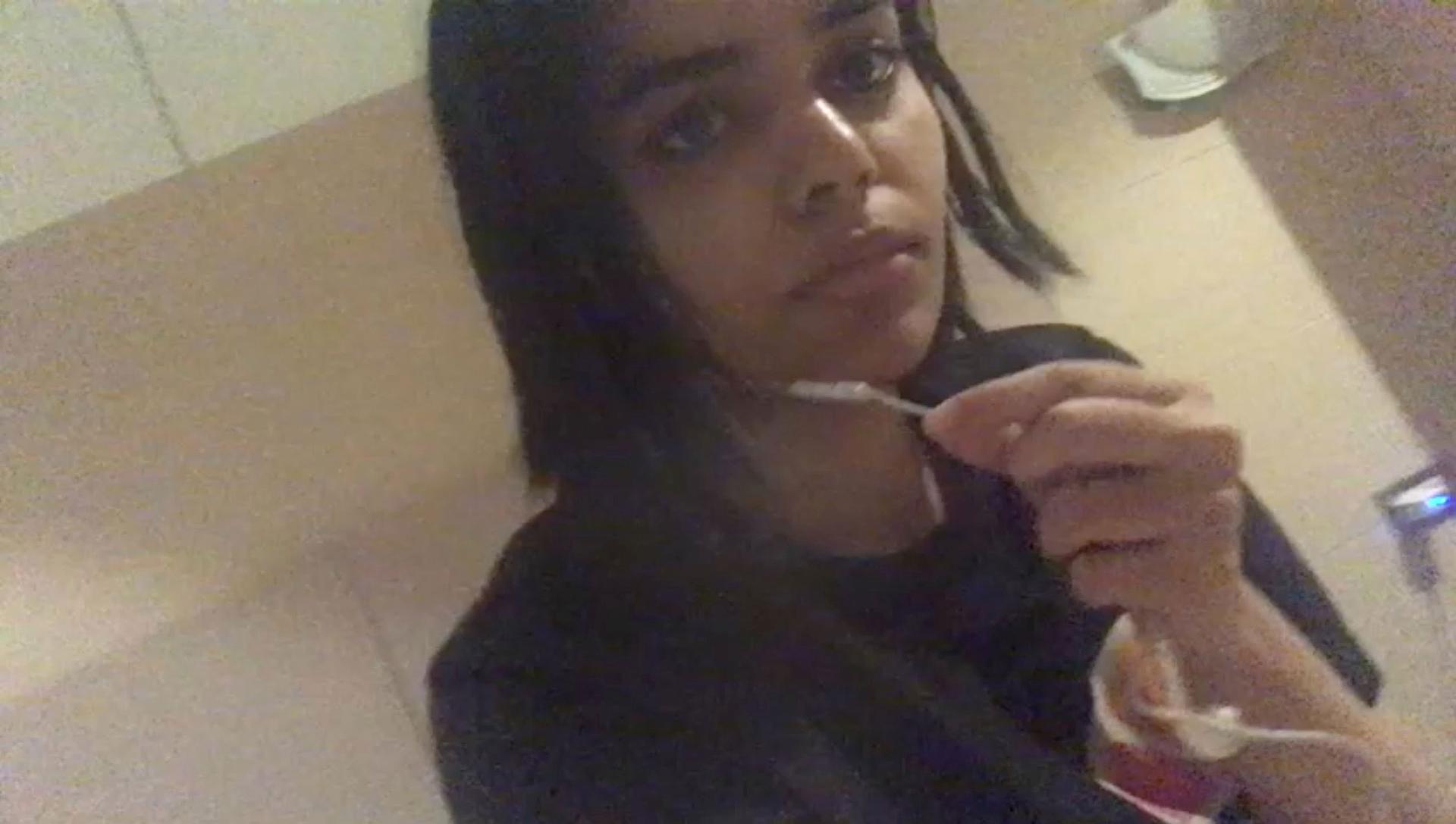Thailand, UNHCR confer on Saudi teen barricaded in Thai hotel
Rahaf Mohammed al-Qunun, a Saudi woman who claims to be fleeing her country and family, speaks in a room in Bangkok, Thailand, Jan. 6, 2019, in this still image taken from a video obtained from social media.
An 18-year-old Saudi woman, Rahaf Mohammed al-Qunun, has barricaded herself inside an airport hotel in Bangkok over fears that her family wants to kill her.
Al-Qunun has been at Bangkok’s international airport since Saturday when she arrived from Kuwait. She has said she fears she will be killed if she is returned to her family, which could not be reached for comment on her accusations of abuse.
A representative of the UN High Commissioner for Refugees (UNHCR) met al-Qunun at the airport and was to discuss the case with Thai immigration officials.
“We and UNHCR will talk to her and ask her what her wishes are, whether she wants to request asylum,” immigration chief Surachate Hakparn told a news conference.
He said Thai officials were following the law in initially refusing her entry, but added “if she is to be hurt or punished or killed, we will need to take into consideration human rights principles.”
Surachate also acknowledged for the first time Saudi embassy had alerted Thai authorities to al-Qunun’s arrival.
“The Saudi Arabia embassy contacted the immigration police … and said that the girl had run away from her parents and they fear for her safety,” he said.
“We acknowledged this and checked her paperwork. She had a passport but no return ticket, no travel plan, and no destination or hotel reservation in Thailand … so per airport security procedures, immigration denied her entry.”
‘They will kill me’
Al-Qunun posted a video on Twitter on Monday of her barricading her hotel door with a table and a mattress.
She told Reuters via text and audio messages she had fled Kuwait while her family was visiting the Gulf country and had planned to travel from Thailand to Australia to seek asylum. She said she was detained after leaving her plane in Bangkok and told she would be sent back to Kuwait.
“They will kill me,” al-Qunan told Reuters. “My life is in danger. My family threatens to kill me for the most trivial things.”
Al-Qunun said she had obtained an Australian visa and booked a flight. She said she had planned to spend a few days in Thailand so she would not spark suspicion when she left Kuwait.
Surachate, however, said that al-Qunun did not have a visa for Australia. The Australian Embassy said it had no immediate comment.
The Saudi Foreign Ministry also denied her allegations that its embassy had confiscated her passport.
Social media pleas
Asked why she was seeking refuge in Australia, she said: “Physical, emotional and verbal abuse and being imprisoned inside the house for months. They threaten to kill me and prevent me from continuing my education.
“They won’t let me drive or travel. I am oppressed. I love life and work and I am very ambitious but my family is preventing me from living.”
In her initial social media pleas, al-Qunun said her family was powerful in Saudi society but she did not identify them.
Saudi culture and guardianship policy requires women to have permission from a male relative to work, travel, marry and even get some medical treatment. The deeply conservative Muslim country lifted a ban on women drivers last year.
Right groups have rushed to assist al-Qunun following her pleas on social media.
The UNHCR said its representative had met her but would not comment on the details of the meeting or its outcome.
It said in a statement that Thailand had a responsibility not to expel or return anyone to a territory where their life or freedom would be threatened.
“This principle is recognized as customary international law, and is also enshrined in Thailand’s other treaty obligations,” the UNHCR statement said.
New York-based Human Rights Watch said Thailand should not send al-Qunun back to her family because she says she faces danger.
Thailand vowed to protect her while she remained in the country.
“She is under Thailand’s sovereignty now. No one, no embassy can force her to go anywhere,” Surachate said. “We will protect her as best as we can.”
By Patpicha Tanakasempipat/Reuters
Reporting by Patpicha Tanakasempipat in Bangkok; Additional reporting by Ghaida Ghantous in Dubai, Panu Wongcha-um in Bangkok; Editing by Nick Macfie.
The story you just read is accessible and free to all because thousands of listeners and readers contribute to our nonprofit newsroom. We go deep to bring you the human-centered international reporting that you know you can trust. To do this work and to do it well, we rely on the support of our listeners. If you appreciated our coverage this year, if there was a story that made you pause or a song that moved you, would you consider making a gift to sustain our work through 2024 and beyond?
